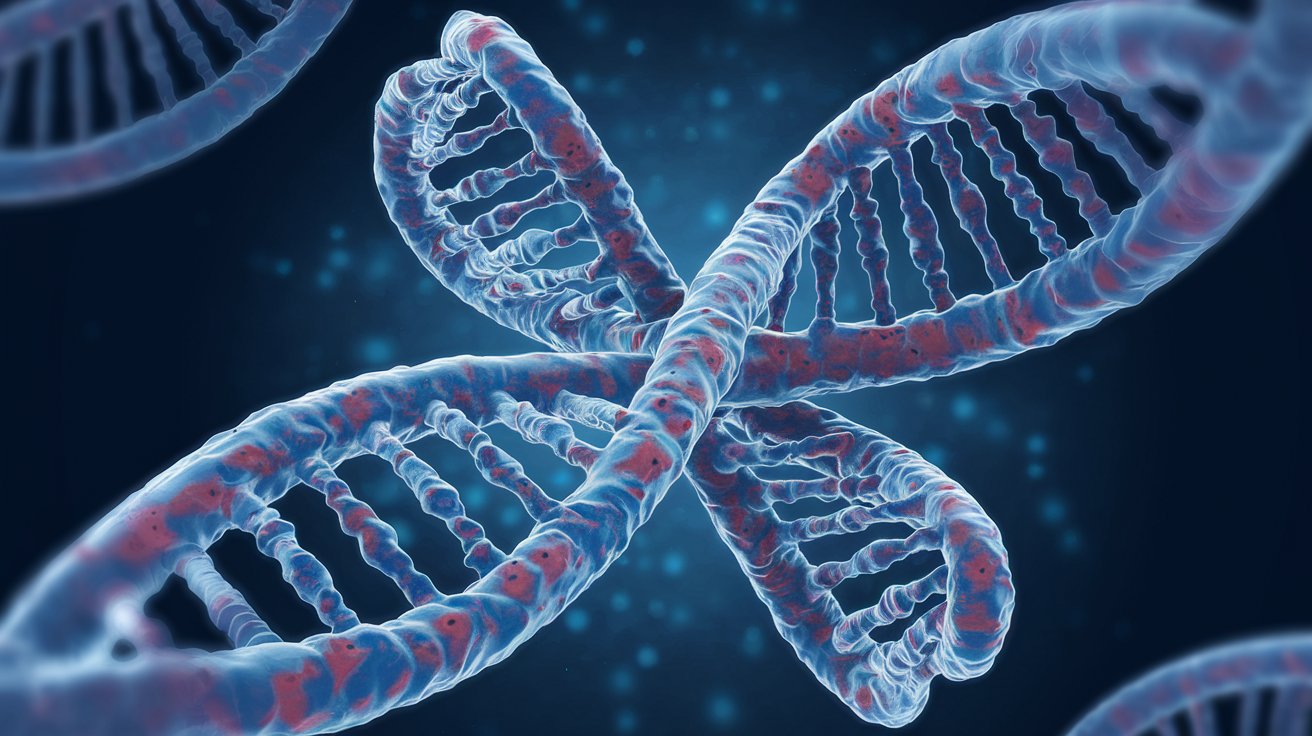
Marker Chromosome 15 is a rare genetic anomaly that can lead to a variety of health issues. But what exactly is it? A marker chromosome is an extra piece of genetic material that doesn't match the typical structure of chromosomes. When this extra piece is from chromosome 15, it can cause developmental delays, intellectual disabilities, and physical abnormalities. Understanding this condition can be crucial for families and healthcare providers. In this post, we'll explore 25 intriguing facts about Marker Chromosome 15, shedding light on its causes, symptoms, and potential treatments. Ready to learn more? Let's dive in!
Key Takeaways:
- Marker Chromosome 15 is a rare genetic anomaly causing developmental delays, seizures, and other health issues. Early diagnosis and support from healthcare professionals and family are crucial for managing the condition effectively.
- Individuals with Marker Chromosome 15 may benefit from therapies, medications, and support groups to improve their quality of life. Ongoing research and advocacy efforts are essential for raising awareness and developing new treatments.
What is Marker Chromosome 15?
Marker Chromosome 15, also known as an isodicentric chromosome 15, is a rare genetic anomaly. It involves an extra piece of chromosome 15, which can lead to various developmental and health issues. Here are some intriguing facts about this condition.
-
Rare Occurrence: Marker Chromosome 15 is quite rare, occurring in approximately 1 in 30,000 live births.
-
Genetic Anomaly: This condition is caused by an extra piece of chromosome 15, which can be present in some or all of the body's cells.
-
Variable Symptoms: Symptoms can vary widely, from mild to severe, depending on the size and genetic content of the extra chromosome.
-
Developmental Delays: Many individuals with Marker Chromosome 15 experience developmental delays, particularly in speech and motor skills.
-
Intellectual Disability: Some people with this condition have intellectual disabilities, ranging from mild to moderate.
Health Issues Associated with Marker Chromosome 15
Individuals with Marker Chromosome 15 may face various health challenges. These can affect multiple systems in the body.
-
Seizures: Seizures are common in individuals with this condition, often beginning in early childhood.
-
Autism Spectrum Disorder: Many children with Marker Chromosome 15 are diagnosed with autism spectrum disorder.
-
Hypotonia: Low muscle tone, or hypotonia, is frequently observed, making physical activities more challenging.
-
Obesity: There is an increased risk of obesity, particularly in those with Prader-Willi syndrome, which is related to Marker Chromosome 15.
-
Sleep Disorders: Sleep disturbances, including sleep apnea, are common among affected individuals.
Diagnosing Marker Chromosome 15
Accurate diagnosis is crucial for managing the condition effectively. Here are some key facts about the diagnostic process.
-
Genetic Testing: Diagnosis typically involves genetic testing, such as karyotyping or chromosomal microarray analysis.
-
Prenatal Detection: In some cases, Marker Chromosome 15 can be detected prenatally through amniocentesis or chorionic villus sampling.
-
Clinical Evaluation: A thorough clinical evaluation, including a detailed medical history and physical examination, is essential.
-
Family History: Genetic counseling and family history assessment can provide valuable insights into the condition.
-
Early Intervention: Early diagnosis allows for timely intervention, which can significantly improve outcomes.
Treatment and Management
While there is no cure for Marker Chromosome 15, various treatments and management strategies can help improve quality of life.
-
Therapies: Speech, occupational, and physical therapies are often beneficial for addressing developmental delays and hypotonia.
-
Medications: Anti-seizure medications may be prescribed to manage epilepsy.
-
Behavioral Interventions: Behavioral therapies can help manage autism spectrum disorder and other behavioral issues.
-
Nutritional Support: Nutritional counseling and support are important, particularly for managing obesity and related health issues.
-
Regular Monitoring: Regular medical check-ups are essential to monitor and address any emerging health concerns.
Support and Resources
Support from healthcare professionals, family, and community resources can make a significant difference for individuals with Marker Chromosome 15 and their families.
-
Support Groups: Joining support groups can provide emotional support and practical advice from others facing similar challenges.
-
Educational Resources: Access to specialized educational resources can help children with Marker Chromosome 15 reach their full potential.
-
Advocacy: Advocacy organizations work to raise awareness and improve resources for those affected by rare genetic conditions.
-
Research: Ongoing research is crucial for understanding Marker Chromosome 15 better and developing new treatments.
-
Family Support: Providing support and education to family members is essential for creating a supportive home environment.
Final Thoughts on Marker Chromosome 15
Marker Chromosome 15, also known as idic(15), plays a significant role in various genetic conditions. Understanding its impact can help in diagnosing and managing disorders like Prader-Willi syndrome and Angelman syndrome. These conditions often involve developmental delays, intellectual disabilities, and unique physical features. Early detection and intervention can make a big difference in the quality of life for those affected.
Research continues to uncover more about this chromosome's complexities. Genetic counseling is crucial for families dealing with these conditions, offering support and guidance. Awareness and education about Marker Chromosome 15 can lead to better outcomes and more informed decisions.
Stay curious and keep learning about genetics. The more we know, the better we can support those impacted by these unique genetic markers. Knowledge truly is power when it comes to understanding our genetic makeup.
Frequently Asked Questions
Was this page helpful?
Our commitment to delivering trustworthy and engaging content is at the heart of what we do. Each fact on our site is contributed by real users like you, bringing a wealth of diverse insights and information. To ensure the highest standards of accuracy and reliability, our dedicated editors meticulously review each submission. This process guarantees that the facts we share are not only fascinating but also credible. Trust in our commitment to quality and authenticity as you explore and learn with us.
